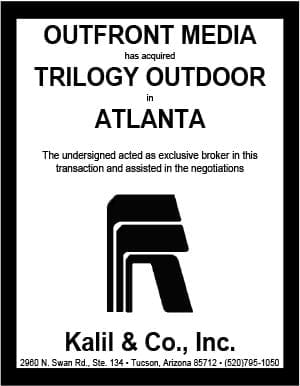
By Richard Rothfelder, Rothfelder and Falick
The Texas Supreme Court recently rendered an opinion in a contract dispute between a couple of major pipeline companies that has a tremendous effect on the way billboard companies do business, as well as on commercial transactions in general. Specifically, in a unanimous decision rendered on January 31, 2020, the Court in Energy Transfer Partners vs. Enterprise Products Partners ruled that letters of intent should be narrowly construed to preclude the implied creation of contractual and partnership obligations (click here for link to case).
Enterprise and Energy Transfer, two of the Nation’s largest competitors in oil and gas pipeline operation, entered into a series of letters of intent to jointly build and operate a pipeline to transmit crude oil from northern fields to the Texas Gulf Coast refineries. Among other provisions, the letters of intent expressly provided for confidentiality, that no contractual obligations would arise until the boards of both parties approved the transactions, and that further definitive agreements would be drafted and executed by the parties. Thereafter, but before the contemplated definitive agreements were executed by the parties’ respective boards of directors, Enterprise and Energy Transfer started jointly marketing the pipeline to potential customers, but without much success. Enterprise then abandoned its efforts with Energy Transfer, and entered a separate contract for pipeline operation with yet another major competitor, Enbridge, which became a financial success.
Energy Transfer sued, arguing that it had formed a partnership with Enterprise to market and otherwise pursue a pipeline through its conduct, and that Enterprise breached its implied contractual obligations by abandoning those efforts and instead proceeding with Enbridge. The jury agreed, and awarded Energy Transfer $535,794,777 in damages. The Texas Court of Appeals reversed and rendered judgment for Enterprise, and the Texas Supreme Court affirmed. By way of full disclosure, Enterprise is a client of mine, and I submitted an amicus brief on its behalf to the Court, which relied on old and recent precedent supporting the right to freedom of contract, such as the following quote from the 1951 Texas Supreme Court decision in Wood Motor vs Nebel: “The citizen has the liberty of contract as a natural right which is beyond the power of the government to take from him. The liberty to make contracts includes the corresponding right to refuse to accept a contract or to assume such liability as may be proposed.” In short, the Court found that the intent manifested in the parties’ letter agreements was that they would not be contractually bound unless and until further definitive contracts were signed by their respective boards, and that these letters of intent overrode the statutory assumptions of partnership formation by the parties’ conduct otherwise found in Section 152 of the Texas Business Organizations Code.
The Energy Transfer vs Enterprise case directly effects how business is conducted in the billboard industry, including in asset purchase agreements, perpetual easements, ground leases, advertising contracts, and any of the other transactions involving negotiations and due diligence before final definitive contract documents are executed by authorized representatives. In order to avoid unwanted and unanticipated formation of binding obligations by conduct and implication, the letter of intent should be very specific in outlining the parties’ intent that no such obligations are being undertaken by the parties, nor will they arise unless and until further definitive contract documents are executed by the parties’ respective boards or other authorized representatives.
______________
On March 18 I will be a guest on the Billboard Insider podcast. Dave Westburg will be discussing letters of intent, billboard regulations, billboard leases and billboard easements. The podcast coincides with the the launch of Billboard Insider’s Guide to Leases, Easements, and Real Estate, which Billboard Insider and I have co-authored. Billboard Insider’s Guide to Leases, Easements and Real Estate will be available in ebook and pdf formats on Billboard Insider’s website starting March 18th.
[wpforms id=”9787″]
Paid Advertisement

















